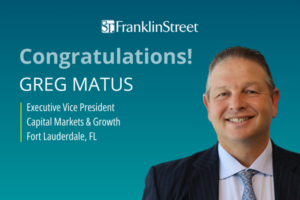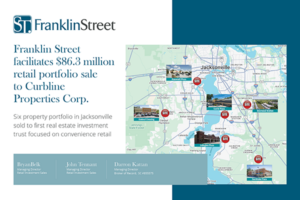The Kroger Co. is planning to launch its online grocery service in metro Atlanta, with a new store in Gwinnett County slated as one of the first locations to offer the “click and collect” option.
The Cincinnati-based company and nation’s biggest supermarket operator looks to make Atlanta one of the handful of markets to offer what it calls “ClickList,” a service it began expanding this year.
Kroger wants to build a 123,000-square-foot Marketplace store at Sugarloaf Parkway and Martins Chapel Road just east of Dacula, according to plans submitted to the Gwinnett County Department of Planning and Development. The store would give customers the ability to order groceries online and pick them up at a specific time. A Kroger employee would bring the items to the car.
The project is set for a hearing in January.
It’s uncertain if the service is planned for additional metro Atlanta stores. So far, it’s not up and running in Georgia, but the company should have more details to share after Christmas, Kroger spokesman Glynn Jenkins said in an email to Altnat Business Chronicle. Cincinnati TV station WCPO reported in June that Kroger is planning to install ClickList at up to 1,200 stores nationwide, including at least 60 in 2015. Kroger operates about 2,600 supermarkets in 34 states and the District of Columbia.
In October, Atlanta Business Chronicle sister publication Cincinnati Business courier reported that Nashville, Tenn., became the fifth metro area where Kroger rolled out the online ordering and customer pickup service.
The company also offers it in cities such as Cincinnati, Indianapolis and Lexington, Ky. Kroger is also considering Columbus, Ohio, sometime next year.
The expansion comes on the heels of early optimism about customers’ reception of ClickList. In a June conference call with Wall Street analysis, Kroger Chairman and CEO Rodney McMullen said, “If you look at our original plan, we’re tracking… exactly where we thought we would be on the original plan and feel good about it.” More retailers are expanding their online business in Atlanta, including The Home Depot Inc., as part of an effort to grow digital sales. But, the strategy has proven tricky for grocers in Atlanta.
One well-known failure involved Webvan, which popped up during the dog-com bubble, offering a 30-minute home-delivery of its grocery items along with other products such as books.
By August 2001, the Internet grocer was pulling out of Atlanta. Publix Super Markets Inc. also tried home delivery and a version of “click and collect” at locations including its Town Brookhaven store, before nixing the idea.
“We tested the total store model four or five years ago, and it wasn’t as popular or as successful as we had hoped,” said Publix spokeswoman Brenda Reid.
For now, Publix only offers online ordering for bakery and deli items, Reid said. “This is something the company will continue to explore.”
Amazon.com may be the biggest catalyst as more grocers enter the online space.
It’s about trying to compete with AmazonFresh, said Monetha Cobb, managing director at Franklin Street Real Estate Services. Even Wal-Mart Stores Inc. is tring to figure out how it can expand into online grocery sales, Cobb said.
“It’s about a convenience factor,” she said. “Maybe the timing is right for this.”
Kroger is also launching ClickList in more cities as it continues to build larger stores with more products and services. Last year, it opened its largest store in Georgia, a Kroger Marketplace in Savannah that offered almost 100,000 square feet of merchandise including home fashions, kitchen and small appliances, home office and toys.
ClickList is “one more avenue to gain market share,” Cobb said. “It’s an easy add.”
Although other grocers struggled, Kroger stands a much better chance, said John Bemis, the retail market lead for Jones Lang LaSalle Inc. in Atlanta and the Southeast.
“Kroger’s probably got a leg up,” he said, citing the large network of stores the supermarket chain has across Georgia.
As Kroger and others try to expand digital sales, one challenge is the possible loss of the impulse purchase. Supermarkets would be wary of the trend because of its risk to cut into already historically thin margins.
“What you lose are impulse purchases,” Bemis said. “Are you going to buy Twizzlers online? Probably not.”



